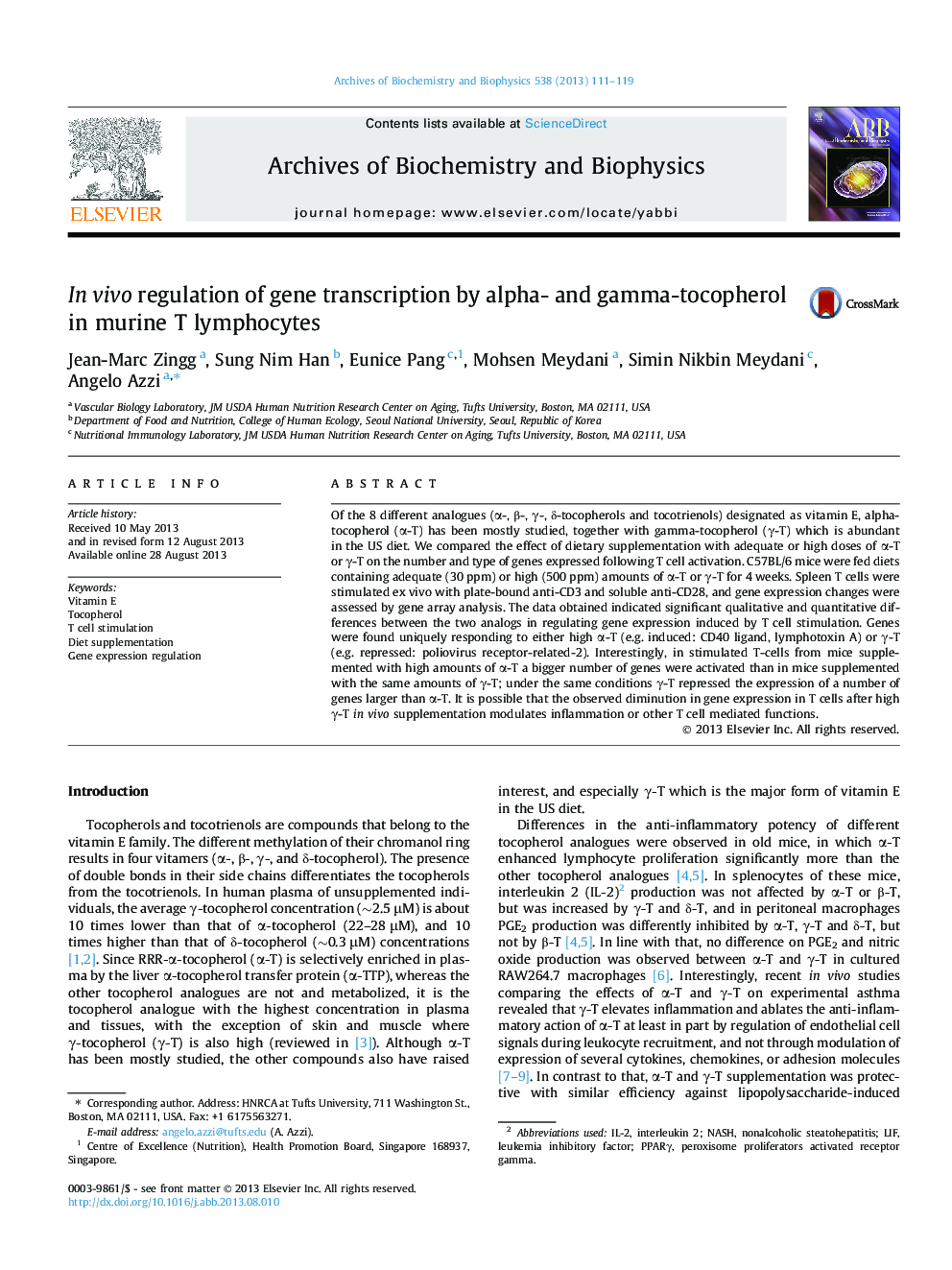| Article ID | Journal | Published Year | Pages | File Type |
|---|---|---|---|---|
| 8290622 | Archives of Biochemistry and Biophysics | 2013 | 9 Pages |
Abstract
Of the 8 different analogues (α-, β-, γ-, δ-tocopherols and tocotrienols) designated as vitamin E, alpha-tocopherol (α-T) has been mostly studied, together with gamma-tocopherol (γ-T) which is abundant in the US diet. We compared the effect of dietary supplementation with adequate or high doses of α-T or γ-T on the number and type of genes expressed following T cell activation. C57BL/6 mice were fed diets containing adequate (30 ppm) or high (500 ppm) amounts of α-T or γ-T for 4 weeks. Spleen T cells were stimulated ex vivo with plate-bound anti-CD3 and soluble anti-CD28, and gene expression changes were assessed by gene array analysis. The data obtained indicated significant qualitative and quantitative differences between the two analogs in regulating gene expression induced by T cell stimulation. Genes were found uniquely responding to either high α-T (e.g. induced: CD40 ligand, lymphotoxin A) or γ-T (e.g. repressed: poliovirus receptor-related-2). Interestingly, in stimulated T-cells from mice supplemented with high amounts of α-T a bigger number of genes were activated than in mice supplemented with the same amounts of γ-T; under the same conditions γ-T repressed the expression of a number of genes larger than α-T. It is possible that the observed diminution in gene expression in T cells after high γ-T in vivo supplementation modulates inflammation or other T cell mediated functions.
Related Topics
Life Sciences
Biochemistry, Genetics and Molecular Biology
Biochemistry
Authors
Jean-Marc Zingg, Sung Nim Han, Eunice Pang, Mohsen Meydani, Simin Nikbin Meydani, Angelo Azzi,
